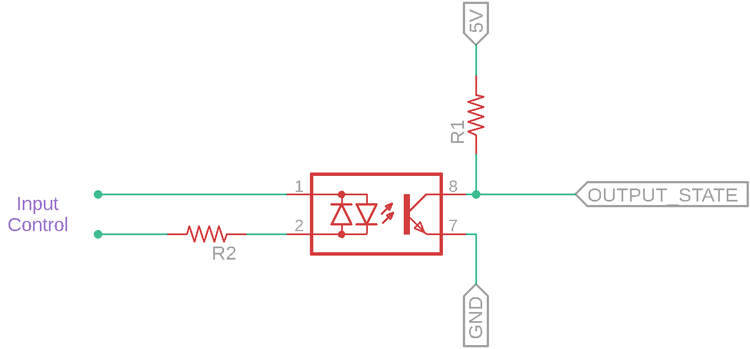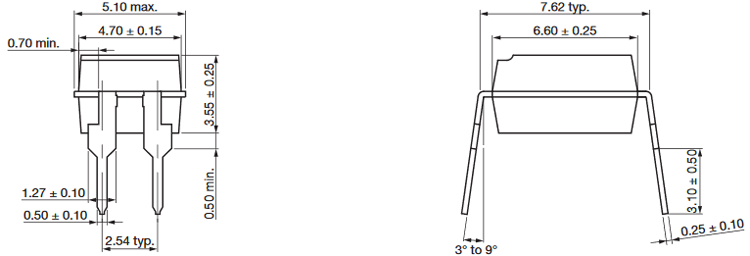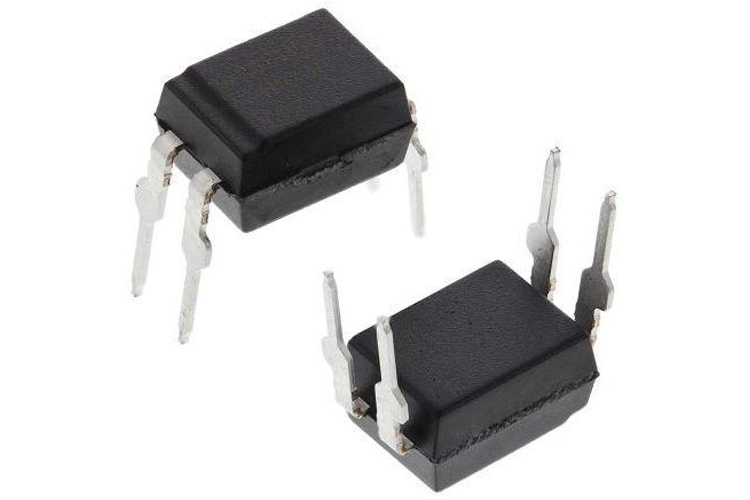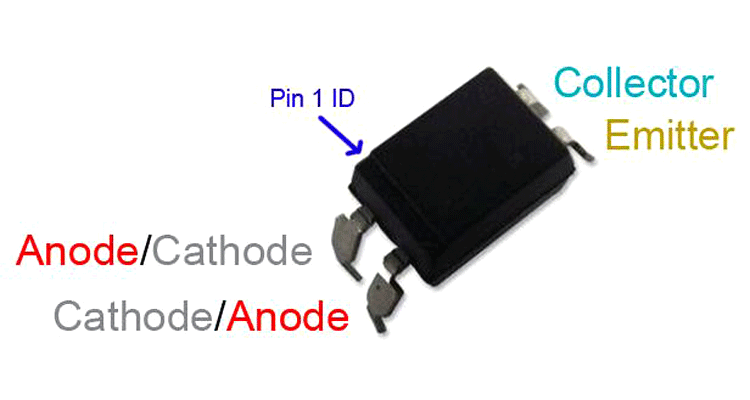SFH620A Optocoupler
SFH620A is an AC Input based Phototransistor Output Optocoupler that offers high current transfer ratio, high isolation voltage as well as low coupling capacitance in a small 4 pin package. It is very useful to isolate two separate circuits but still making communication between the two using a safer way. By using this optocoupler, one can achieve more than 8mm creepage and clearance distances. It is available in two both DIP and SMD packages.
Pin Description of SFH620A Optocoupler
|
Pin Number |
Pin Name |
Description |
|
1 |
Anode |
Anode\Cathode pin of the two LEDs respectively |
|
2 |
Cathode |
Cathode\Anode pin of the two LEDs respectively |
|
3 |
Emitter |
Emitter pin of the phototransistor. |
|
4 |
Collector |
Collector pin of the phototransistor. |
Features and specification of SFH620A LED
- 5300 VRMS isolation Test voltage
- High Collector-Emitter Voltage VCEO = 70V
- Good CTR linearity depending on forward current
- CTR value: 100 to 320
- Forward Voltage: 1.25V (Typ), 1.65V (Max)
- Collector Current: 50mA
- Power Dissipation: 150mW
- Lead Spacing 0.100” (2.54mm) spacing
Note: Complete technical details can be found in the SFH620A Datasheet linked at the bottom of this page.
Alternative product of SFH620A Optocoupler
Replacement of this SFH620A Optocoupler-
- PC817
- LTV817
SFH620A Optocoupler - Overview
The SFH620A Optocoupler uses two GaAs infrared Diode emitters in parallel one in the reverse direction and other in forwarding direction to make it an AC coupled optocoupler. It has a low coupling capacitance as well as good CTR linearity that is dependent on the forward current of the emitter.
An Isolation of 5300 VRMS making it suitable for safety-related instruments. The optocoupler also complies with the IEC 60950 guidelines for reinforced insulation to an operational voltage of 400 VRMS or DC. It has a 0.100” (2.54”) lead spacing and is available in both SMD and DIP-packages.
SFH620A- Application Circuit
The below image is showing standard 5V interfacing of the optocoupler. It requires basic components, just two resistors.

Optocouplers are required where two circuits are needed to be electrically isolated from each other but the communication between the two circuits is required. An optocoupler has two sections, one is the LED section that emits light and the other section is the phototransistor section that detects the emitted light and works accordingly. The Circuit that needs to send the data is required to control the LED portion and the circuit that needs to process the data and work accordingly will have the control using the phototransistor.
In the above image, the interfacing is shown, a resistor of R1 is used to limit the diodes forward current and the resistor in the collector will limit the collector current. If the LED will be lit up, the transistor will change the collector state from High to Low.
Applications of SFH620A Optocoupler
- SMPS
- High voltage and low voltage circuit communication
- AC Detection
- MCU based I/O operations where isolation is required
- Sensitive consumer-grade applications
- Industrial automation
2D and Dimensions of SFH620A







